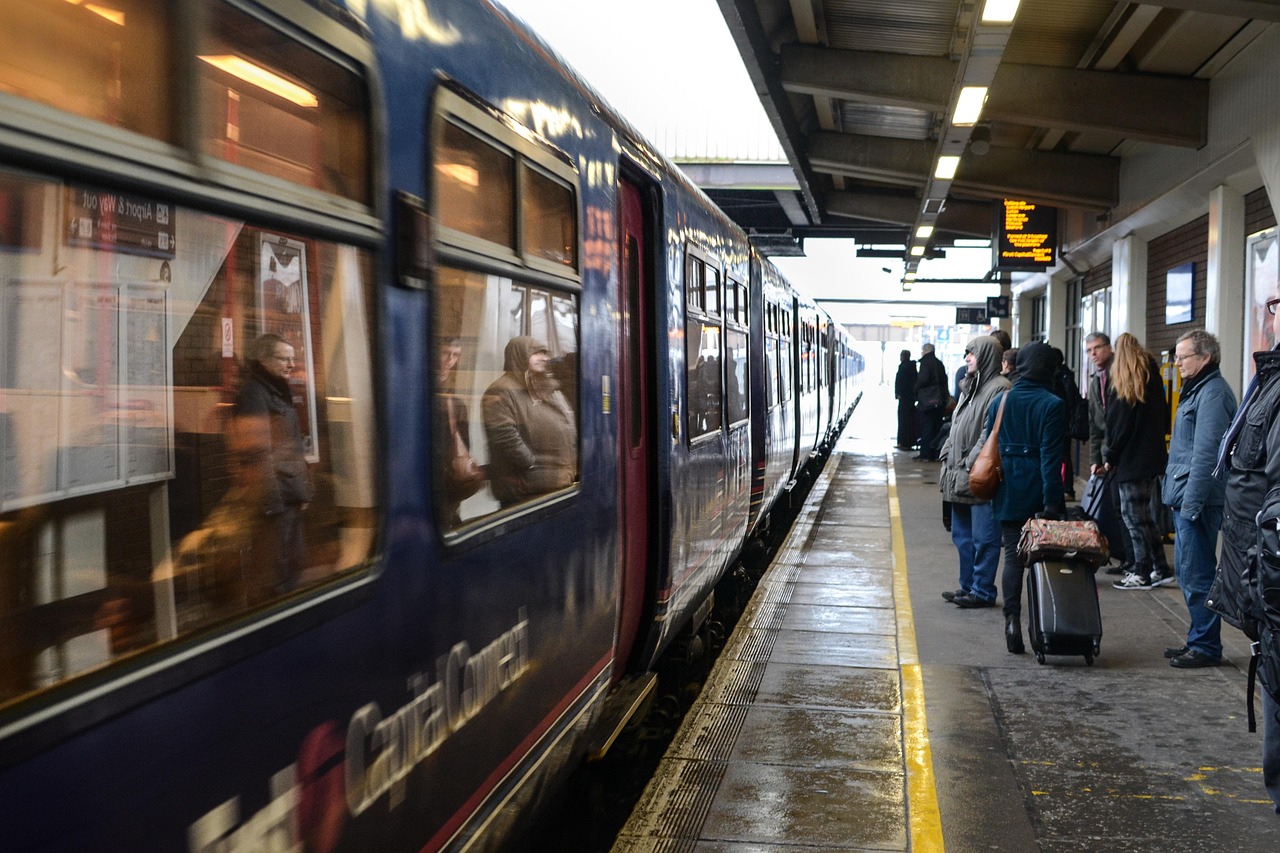Train Travel: The Sustainable Alternative to Flying
Sustainable travel insights and guidance
📅 March 15, 2024
⏱️ 8 min read
🏷️ Transportation
Train travel offers one of the most sustainable and enjoyable ways to explore the world. With significantly lower carbon emissions than flying, comfortable amenities, and the opportunity to see landscapes up close, trains provide an eco-friendly alternative that's often more rewarding than air travel.
🚂 The Environmental Advantage of Trains
Trains produce up to 80% fewer emissions per passenger than airplanes, making them one of the most sustainable forms of long-distance transportation. Modern electric trains can run on renewable energy, further reducing their environmental impact.
🌍 Environmental Benefits of Train Travel
Train travel offers significant environmental advantages over other forms of transportation, making it an ideal choice for sustainable travel.
Lower Carbon Emissions: Trains produce significantly fewer CO2 emissions per passenger than airplanes, especially electric trains powered by renewable energy.
Energy Efficiency: Trains are one of the most energy-efficient forms of transportation, using less energy per passenger-mile than cars or planes.
Reduced Air Pollution: Electric trains produce no direct air pollution, improving air quality in cities and along rail corridors.
Land Use Efficiency: Rail infrastructure uses land more efficiently than highways and airports, preserving more natural space.
 Alpine
Alpine
🌄 Scenic Rail Routes Around the World
Some of the world's most beautiful landscapes are best experienced by train, offering views and experiences impossible from the air.
Swiss Alps: The Glacier Express and Bernina Express offer breathtaking views of the Swiss Alps and UNESCO World Heritage landscapes.
Rocky Mountains: The Rocky Mountaineer in Canada and Amtrak's California Zephyr in the US showcase spectacular mountain scenery.
Japanese Shinkansen: High-speed rail through Japan offers views of Mount Fuji, cherry blossoms, and traditional landscapes.
European Countryside: Train travel through Europe offers views of medieval villages, vineyards, and coastal landscapes.
🎫 Planning Your Train Journey
Planning a train journey requires different considerations than air travel, but often offers more flexibility and better value.
Route Research: Research train routes, schedules, and connections to find the best options for your journey.
Pass Options: Consider rail passes for multiple journeys, which often offer significant savings and flexibility.
Booking in Advance: Book tickets in advance for better prices and seat selection, especially for popular routes.
Stopover Planning: Take advantage of train travel to explore cities and regions along your route with stopovers.
🚄 High-Speed Rail Networks
High-speed rail networks around the world offer fast, efficient, and sustainable alternatives to short-haul flights.
European High-Speed Rail: TGV in France, ICE in Germany, and Eurostar connecting London to Europe offer fast, comfortable travel.
Asian High-Speed Rail: Japan's Shinkansen and China's high-speed rail network offer some of the world's fastest and most efficient train services.
Emerging Networks: New high-speed rail lines are being built in countries like India, Turkey, and the United States.
City Center Access: High-speed rail often connects city centers directly, eliminating the need for airport transfers.
🎒 Train Travel Tips and Comfort
Train travel can be more comfortable and enjoyable than flying with the right preparation and mindset.
Seat Selection: Choose seats facing forward, by windows, or in quiet cars based on your preferences and journey length.
Luggage Considerations: Trains offer more generous luggage allowances and easier access to your belongings during travel.
Food and Dining: Many trains offer dining cars with local cuisine, or you can bring your own food and drinks.
Entertainment: Bring books, music, or work materials, or simply enjoy the changing scenery and people-watching.
🌱 Sustainable Rail Initiatives
Rail companies worldwide are implementing sustainability initiatives to reduce their environmental impact further.
Renewable Energy: Many rail networks are transitioning to renewable energy sources for their operations.
Energy Efficiency: New trains are designed for maximum energy efficiency with regenerative braking and lightweight materials.
Waste Reduction: Rail companies are implementing comprehensive recycling and waste reduction programs.
Carbon Offsetting: Some rail companies offer carbon offset programs for passengers who want to further reduce their impact.
 Train Travel
Train Travel
🌍 International Train Travel
International train travel offers unique opportunities to experience multiple countries and cultures in a single journey.
Eurail Passes: Eurail passes offer flexible travel across multiple European countries with one ticket.
Trans-Siberian Railway: The world's longest railway line offers a unique journey across Russia and into Asia.
Orient Express: Luxury train services offer high-end travel experiences with historical and cultural significance.
Border Crossings: International train travel often involves border crossings, so ensure you have proper documentation.
💰 Cost and Value Considerations
Train travel can offer excellent value, especially when considering the total cost of travel including transfers and time.
Total Cost Analysis: Consider the total cost including airport transfers, parking, and time when comparing train vs. air travel.
Flexibility Value: Train tickets often offer more flexibility for changes and cancellations than airline tickets.
Productivity Benefits: Train travel allows for work, reading, or relaxation that's often impossible on airplanes.
Experience Value: The scenic and cultural experience of train travel often provides value beyond transportation.
🌍 Embracing the Future of Sustainable Travel
Train travel represents the perfect combination of sustainability, comfort, and adventure. As rail networks continue to expand and improve, trains offer an increasingly attractive alternative to air travel for both short and long-distance journeys.
Key Benefits:
- Environmental Impact: Significantly lower emissions than air travel
- Scenic Experience: Unique views and landscapes impossible from the air
- Comfort and Space: More room to move and relax during travel
- City Center Access: Direct connections to city centers without airport transfers
- Cultural Experience: Opportunity to see and experience local life along the route
Remember: Train travel is about more than just getting from point A to point B—it's about the journey itself. Every train journey is an opportunity to slow down, appreciate the landscape, and travel in a way that's kinder to the planet.
 Alpine
Alpine Train Travel
Train Travel